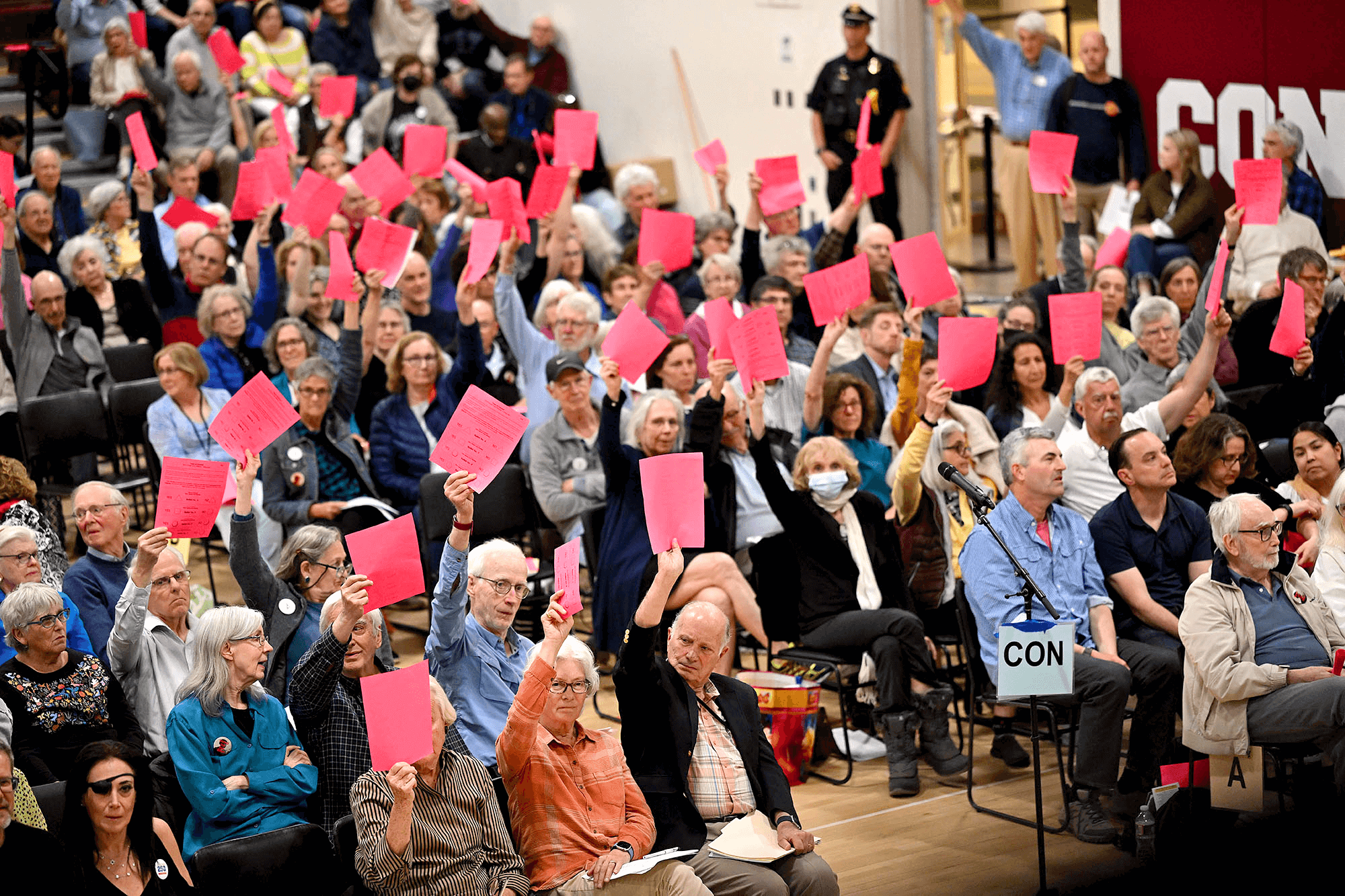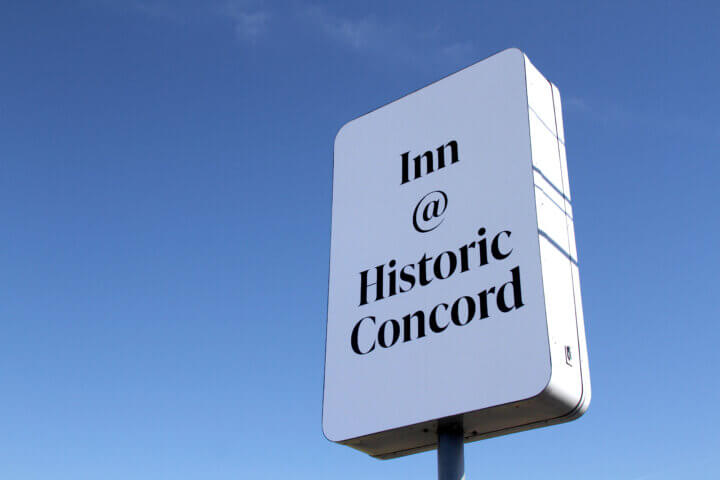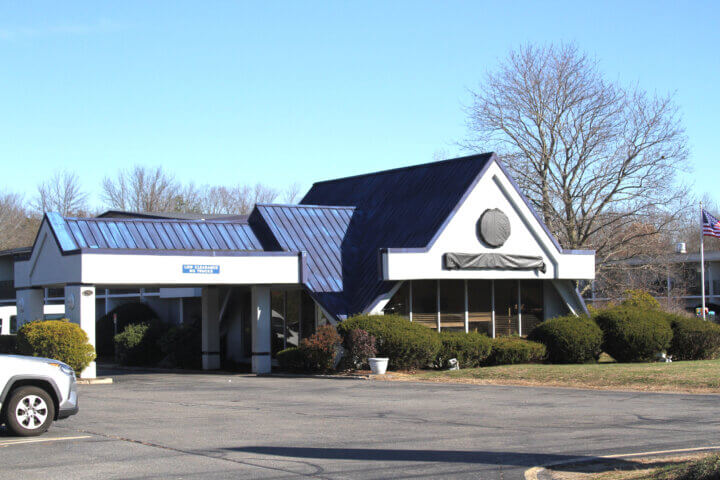By Celeste Katz Marston — Celeste@concordbridge.org
Concord prides itself on its history and traditions, but there’s a review underway to see if one of its most time-honored practices — Town Meeting — may also be timeworn.
For the first time in nearly three decades, the town has a group of volunteers formally investigating how Concord’s citizen-driven legislative branch works (or doesn’t) for today’s residents.
The percentage of registered voters who’ve shown up for Town Meeting, which takes critical action on spending and local regulations, has hovered mainly in the low double-digits — or less — since the late 1990s.
Why?
The Town Meeting Study Committee will ask registered voters to share their thoughts in a survey next month and will hold a public forum at 7 p.m. on October 22 at the Harvey Wheeler Community Center.
Committee Chair Eric Moore spoke with The Concord Bridge about the group’s work.
This interview has been edited for clarity and brevity.
The Concord Bridge: We’re looking to update residents on what’s coming up for the Study Committee, including the public forum.
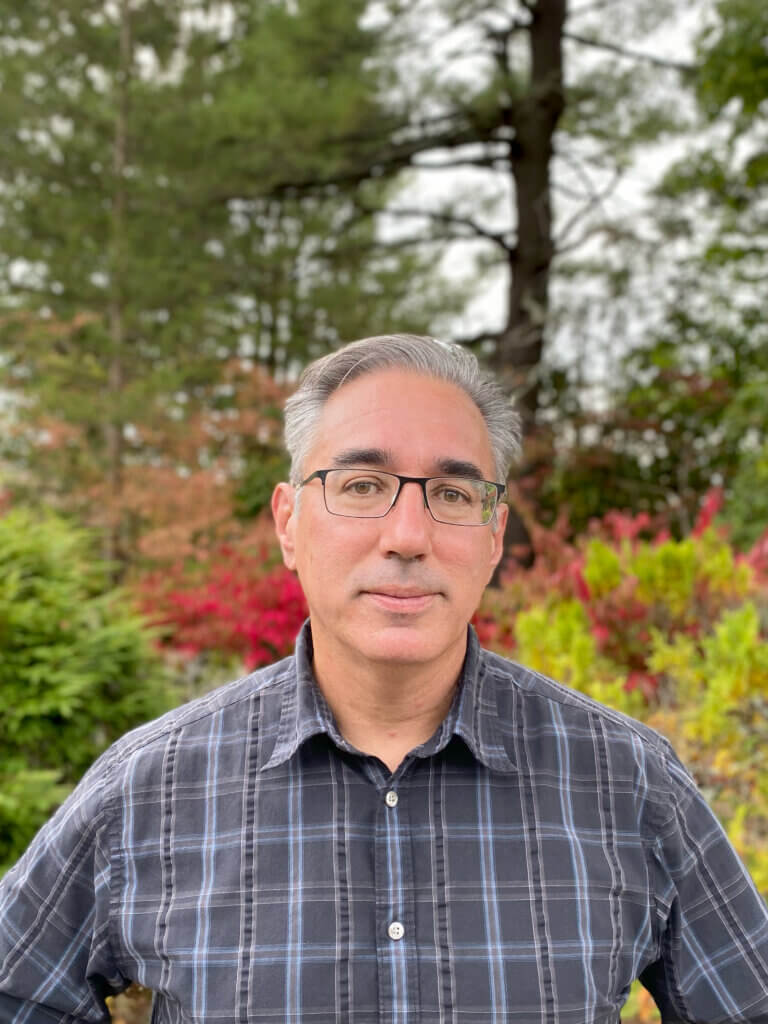
Moore: The mission statement that we developed in July was that we want [it to be the case that] all who want to attend Town Meeting can; that we make efficient use of people’s time; that people have ready means to make well-informed decisions; and that Town Meeting functions credibly as a representative body. … The survey will open October 1 and run through the month.
TCB: What do you want to know from voters?
Moore: We really would like to know why people don’t come to Town Meeting. I think perhaps one person in 10 comes [or] perhaps two people in 10.
I think that the committee and the people who volunteer in government and who work in government believe in Town Meeting, but I don’t know that we understand how everybody else thinks about it. If you do come, what works for you, and what doesn’t work for you? What do you think would be a useful improvement to make it easier for you to attend?
TCB: Opinions on Town Meeting seem to fall into categories: People who like it as-is, those who want changes, and those who say it’s simply anachronistic. How do you handle that?
Moore: We’re looking at how to improve the experience by trying to minimize the unnecessary debate — for example, expanding the consent calendar. The moderator has done a lot to help streamline the meeting. It’s a real question as to whether or not we can make the meeting go faster.
The unique thing about Town Meeting, the really cool thing, is that we’re supposed to listen to each other — and the really frustrating thing is that we have to sit there and listen to each other. I think that if, as a community, we understand and value this unique citizen legislature, then we kind of go, “It is what it is,” and we have to accept that there is a slow process, which is also very valuable.
For the folks that feel it’s antiquated and useless, one needs to sort of go, “What happens if we take it away?” What are the consequences? What do we break?
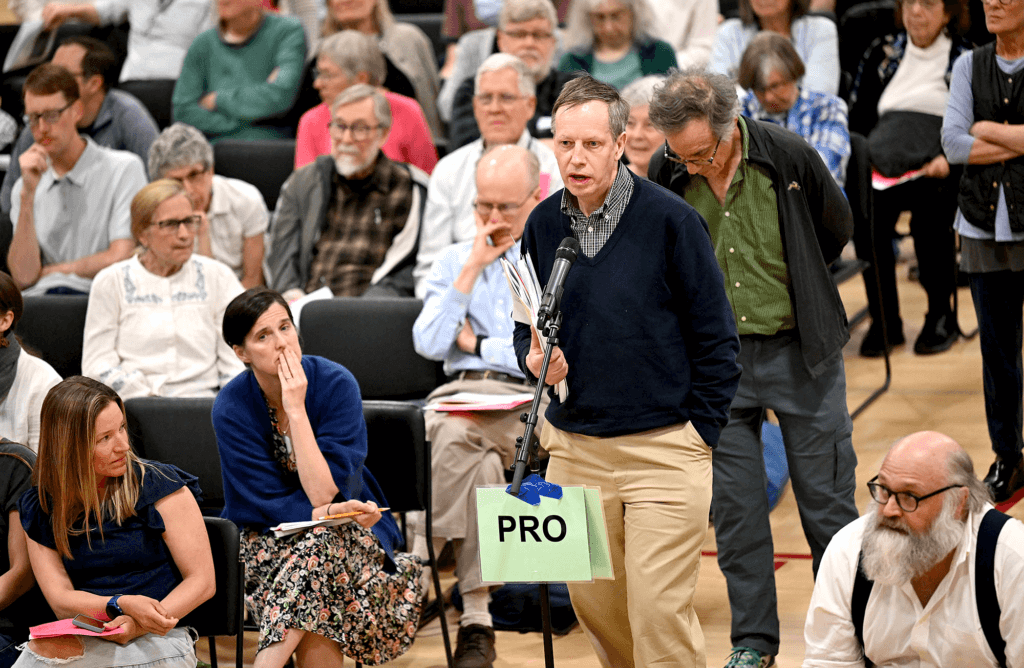
TCB: On remote or hybrid meetings, have you talked about whether that’s realistic?
Moore: We don’t have the right to experiment [with] remote voting. That may involve coordinated action across multiple communities to create enough of a benefit at the state legislature level to enact a home rule petition. This fall, we’ll explore consequences of remote voting. What does it mean to not be in the room? [In] terms of the technology around reliable electronic voting, we haven’t begun to look at that. And I can say that there’s no way that we would see ourselves as an early adopter in any kind of technology.
TCB: Any possibility of limiting Town Meeting to a single day?
Moore: Lincoln’s Town Meeting is that way. It’s a Saturday. It starts early and runs late if necessary. I’d like to see from the survey how much appetite there is for a meeting on either day of the weekend.
TCB: The survey is self-selecting so it might not be representative, but what if people said they didn’t just want a Town Meeting form of government anymore?

Moore: The state requires that as a town, we have to have a Town Meeting. Now, we could choose to have a Representative Town Meeting. We could also shift to a town council style of government without permission from the state.
There’s a [survey] question around, “What makes [Town] Meeting challenging for you?” If 90 percent of our responses [cite] childcare or caregiving needs, that will tell us something.
TCB: Why should people invest in thinking about and attending Town Meeting? The attendance numbers do tell a story.
Moore: Voting is self-defense. Power is allocated no matter whether you show up or not. And if you want to have a role in how power and resources are allocated, how our town is regulated, you have a better chance of getting a better outcome if you’re participating than if you’re not.
Town Meeting is this mechanism that implements the key function of democracy, and we’d like the mechanism to work better. If you care to participate, we’d like to make it easier for you to participate and your experience to be better. But if you don’t care, I’d really like to understand why.


